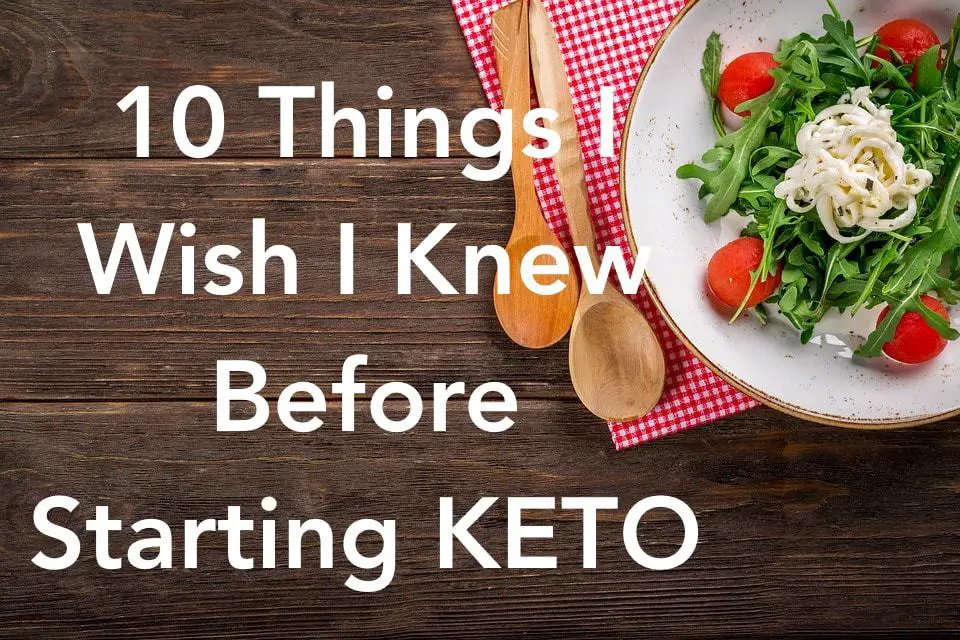
Starting anything new – especially a diet – can be a bit scary and overwhelming. Starting Keto is no different, especially because there is so much information out there.
Being a keto beginner can be scary, but if you arm yourself with the right information you can sustain a Keto diet long term!
It can be hard to work out what to trust, where to begin, and to understand what benefits you can expect.
But there are a few things that are non-negotiable as a beginner to Keto.
There are different opinions on macro levels, using fat to feel full vs as a goal and whether you really need vegetables. The debate is constant around high fat vs moderate fat and protein levels.
All of these factors can make it daunting when starting a Ketogenic diet, so below I’ve cut out the crap and just given you 10 simple things you must know!
Here’s my list of 10 things I wish I knew before starting keto.
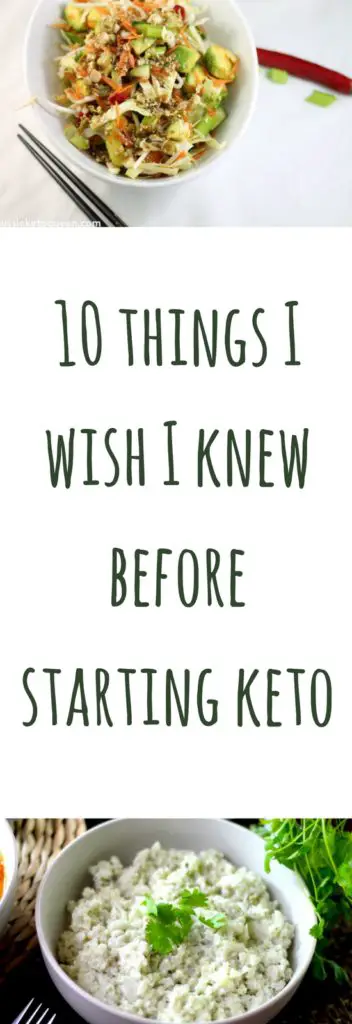
I did this on my own and learnt many lessons the hard way, but a quick google makes you realise very quickly you are not on your own!
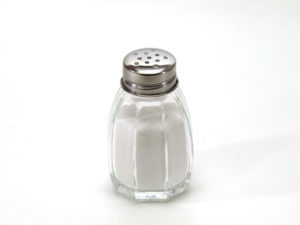
-
Electrolytes
Getting enough electrolytes is crucially important to feeling great, especially when starting Keto.
Put simply, electrolytes are sodium, magnesium and potassium and many people who feel awful at the start of a change to the keto way of eating find that increasing their electrolytes is key to getting through the first few weeks.
Two clear signs of electrolyte deficiency is excessive tiredness and muscle cramps. These are especially common when starting keto because your body is adjusting.
I always know when I need to up my electrolyte game because my feet and calf muscles start cramping after exercise.
For sure you can add in some electrolyte supplements, but getting these essential nutrients from food is key.
Nutrition expert Paul Jenkins MSc explains in his ultimate guide to the ketogenic diet: “This is why it is important to eat a wide range of leafy and colourful non- starchy vegetables along with low sugar fruits. These foods collectively, provide a range of micro nutrients including potassium.”
If you would like to read more, I’d recommend: Ketogenic Diet: An Ultimate Guide To Keto (2020)
A quick fix to get some extra electrolytes is bone broth with added salt, or you can try potassium and magnesium supplements and add more salt to your meals.

-
Keto Flu
Closely linked to electrolyte imbalance, keto flu can hit hard especially in the first week of starting keto. I didn’t suffer too bad, but certainly felt a bit run down at the start.
I have seen that it tends to affect those with higher insulin resistance (often when their diets have been heavily reliant on carbs and sugar beforehand), so the change to keto is more of a shock for their bodies to deal with.
Some tips for getting through keto flu is added electrolytes, LOTS of water (always important!), exercise if you can and if it gets really bad, add a few extra clean carbs in the way of vegetables and salads.
BUT the best thing you can do is tough it out when first starting keto and keep those carbs super low, because it means you’ll get into ketosis even quicker and be feeling amazing in no time!
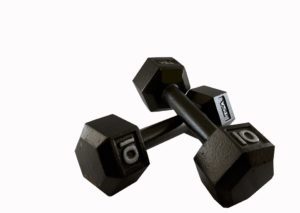
-
Your workouts might suffer at the start
If you work out regularly but have been on a grain/carb heavy diet, your strength may decrease in the beginning.
It takes a few weeks, and up to 6 weeks for most people to become completely fat adapted and for your body to now use fat (ie ketones) as its preferred fuel source.
In the interim, until you reach this point, you may need to take any weight lifting a little easier to begin with to avoid injuring yourself. Listen to your body and do what it needs.
If you are struggling even with modified activity or exercise, take a look at your protein levels.
Our protein requirements vary for women and men, and again if you are lifting weights or are really active. I tend to eat around 0.8 – 1 gram of protein per kg of body weight – but remember this is the protein macro not the weight of the meat.
For example, 1 chicken breast will weigh about 175 grams, but has around 50 grams of protein in it. It’s the 50 grams of protein we are counting.
-
People aren’t as judgemental as you think – especially once you start seeing results
It can be a little daunting announcing to the world you are starting a new diet, especially if you are like me and many others who have tried and failed at many other ‘fad’ diets, and ended up yoyo-ing in weight.
Keto is different in that it is a genuine lifestyle change, and you are doing this first and foremost for your health – weight loss is an added benefit.
There are more studies every day about using the Ketogenic Diet for Weight Loss if you’re interested in reading more.
If anyone questions your eating choices especially when starting keto, it is very easy to respond that you are trying an elimination diet to work out what foods work best with your body.
Let them see the results themselves and if they have genuine interest, they will come to you.
You can read my article Coming Out of the Keto Closet – 3 Tips for Dealing with Negativity for more information.
-
Results are FAST at the start, but level out pretty quickly
Most people see rapid weight loss in the first few weeks when starting keto.
A lot of this can be water weight, inflammation from years of a bad diet and the sudden shock of cutting out carbs. This will inevitably slow down but don’t be disheartened – slow and steady wins the race.
There are numerous studies showing that those that lose weight slowly are much more likely to keep it off, as opposed to crash diets where you lost a lot of weight very quickly but it is unsustainable and you end up putting it all back on.
If ever you feel down because you haven’t lost any weight in a week or have put a little on, always remember how far you have come.
The benefits may not be on the scales every day or every week, but if you are eating a well formulated, nutritious Ketogenic diet you will be healing from the inside out. Each healthy meal choice you make is a step in the right direction.

-
The Scales Lie
The scales can be a cruel beast, and often we obsess over that number. Digital scales are even worse as we can get so depressed over 200grams!
While losing weight on the scales is a good indicator of overall health, it is most certainly not the ONLY indicator that the keto diet is working for you.
I strongly encourage taking photos every month or so and also measuring key areas on your body such as your arms, bust, waist, hips and thighs. By comparing these measurements and photos regularly, you can continue on being motivated even when the pesky scales aren’t playing nice.
I’ve said it before but will say it again, often our bodies have a lot of healing to do before they are ready to lose weight. This can be exacerbated by conditions like Diabetes, PCOS and insulin resistance so patience is going to be essential.

-
Butter is delicious
Need I say more? Buy some really nice butter ( I love Kerrygold) and you’ll start to crave it when hungry. Yes, I will just eat butter if I’m really hangry and need a quick snack!
-
Toilet Time
No doubt this is too much information for a lot of people, but I think it’s important to talk about. If keto is a massive change to your normal diet, you will likely get some stomach upset.
This can come in all different forms, from diarrhoea to constipation and everything in between. I know, this isn’t pretty or fun to talk about, but necessary all the less as you traverse down this new way of eating.
Give your body time to adjust and to heal, and you will be back on track in no time.
-
It gets easier
If it’s a bit tough at the start, stick with it.
Keto can be a shock to the digestive system for those who have been carb/sugar heavy for a long time or for their whole lives, so the first few weeks can be tough. Stick it out, this is a lifelong change to become the best and healthiest you, and these things take time.
Nothing worth doing is easy!
Remember you are making a long term change for your health – chances are you didn’t get unhealthy overnight, so it will take time for your body to adjust.
This is especially true for those of us with underlying issues that can affect our weight, like PCOS, diabetes, hormonal imbalances or insulin resistance.
-
The Amazing Keto Community
There is such an amazing keto community online and they are a never ending source of support, tips and recipes. Jump on instagram, facebook or reddit and you will find a world of amazing fellow keto eaters who have no doubt been through any troubles you are experiencing and will be there through thick and thin.
I love my #ketofam!
You can follow me on instagram or on facebook
Reach out to other keto eaters and remember, be kind online. These are real people, trying to work this whole healthy eating thing out just like you.
What do you Eat on a Ketogenic Diet?
So, with all this in mind, what DO you eat on a ketogenic diet?
There’s plenty of awesome summaries available out there, but the key is to finding the balance of low carb foods that work for you.
I’ve found the DNA Lean health and fitness blog to be a great resource, they even break down all of the different ‘styles’ of ketogenic diet (yes, there are many), so you can easily decide which type of keto suits your lifestyle and goals best.
I also found their sample meal plans really useful, extra recipe options are always great to have.
They’ve also included a comprehensive discussion around good fats and bad fats, perfect if you are just getting started or enjoy a bit of research.
Here’s a sample “Keto Friendly” food list to give you some guidance on creating your own meal plan:
Keto friendly vegetables:
Artichokes
Asparagus
Aubergine/egg plant
Avocados
Broccoli
Brussels sprouts
Cabbage
Cauliflower
Celery
Collard greens
Cucumbers
Green beans
Kale
Lettuce
Mushrooms
Okra
Olives
Radishes
Spinach
Swiss chard
Tomatoes
Turnips
Zucchini/Courgette
Organic pastured/grass-fed meats:
Chicken
Lean ground beef
Lamb
Pork/ham
Steak – particularly fillet steak
Turkey
Wild Seafood (non-farmed):
Oily fish: Salmon/mackerel/trout/pilchards/sardines
White fish: Cod/hake/haddock/Pollock/sea bass/tuna
Clams
Mussels
Oysters
Squid/Octopus
Keto friendly fruits:
Raspberries
Blackberries
Strawberries
Watermelon
From DNA Lean, “Additionally, free range organic eggs and cottage cheese are both great choices for your keto diet plan.
Moderate amounts of nuts and seeds such as almonds, chia seeds, flax seeds, macadamia nuts, pumpkin seeds, and walnuts are all ok too. However the latter items tend to have higher carbohydrate content.
Ultimately no one single food or recipe has to be off your menu or grocery list. Education is key to understanding the nutrient content of food, and this is crucial to your success.”

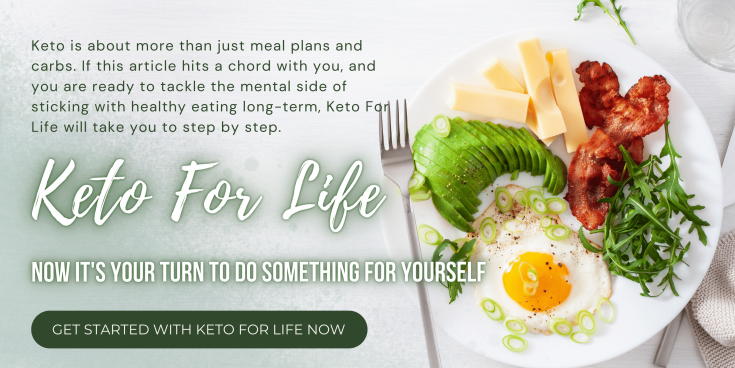

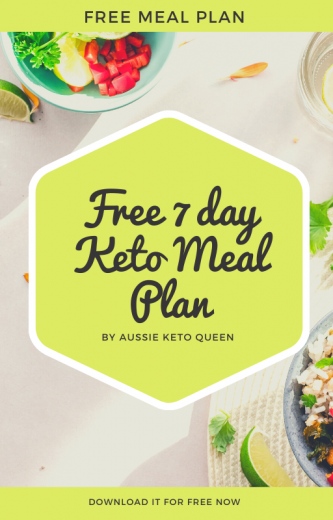

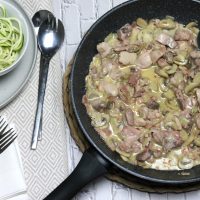

Day 13 of the 21 Day Keto Challenge | Aussie Keto Queen
Friday 13th of September 2019
[…] is a summary version of a more indepth article I wrote here. I encourage you to research any of these if you think they will help […]